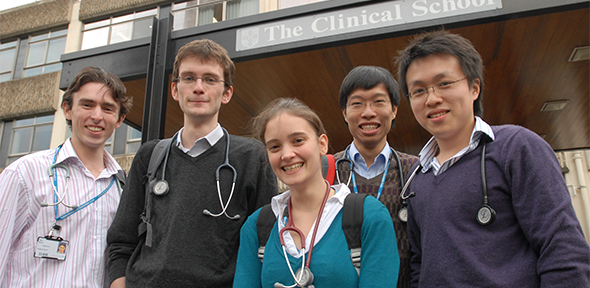
Biostatistics short courses, University of Cambridge
The MRC Biostatistics Unit run a number of successful courses in statistics on a range of topics at different levels, for statistical, clinical and other audiences. Courses include:
- Mendelian Randomization
- Genetics in Drug Development
- Single-Agent Phase I Dose-Escalation Studies
- Dose-finding Designs for Combination Treatments
- Bayesian Statistics Course
Courses normally take place in Cambridge at the East Forvie Building on the Cambridge Biomedical Campus, and are mostly either 1 day or 2 days.
elearning for healthcare - Health Education England
elearning for healthcare was formed in April 2007 to deliver a range of programmes for professional healthcare training. In 2013, elfh transitioned across to Health Education England and continues to work in partnership to develop elearning programmes to support the health and care workforce. It offers several programmes that are relevant to public health
Embedding Public Health into Clinical Services: This programme is intended to support clinicians, leaders and service managers to guide their teams through the process of re-designing services to support prevention.
Health Economics and Prioritisation in Public health: Through this course learners will be introduced to some of the basic principles of health economics, before going on to see how those principles can be applied to decision making through economic evaluation. Throughout, a focus is maintained on public health commissioning.
Public Health Intelligence: Through this programme, learners will be introduced to some of the basic principles of health data, information and intelligence including concepts of health, definitions of public health, population measures, uncertainty and statistical significance and using this to make informed decisions and apply intelligence to gain understanding of population need.
Public health ethics: This elearning programme was developed to provide vital continuing professional development opportunities for the core and wider public health workforce with sessions on an introduction to public health ethics, basic theoretical underpinnings, frameworks and case studies.
NIHR Applied Research Collaboration East of England
The use of research evidence in health and social care should be an everyday occurrence. For this to happen, clinical and non-clinical staff need to be encouraged to scrutinise and question the way things are done, and to welcome innovation, ensuring more rapid diffusion and adoption of evidence-based best practice. Capacity development to enable staff to have the skills to understand and carry out research is a major component of the NIHR Applied Research Collaboration East of England, an academic/service partnership to improve health.
The ARC EoE Fellowship is aimed at clinicians, health & social care practitioners, voluntary sector staff and NHS managers across the East of England. It is for those who would like to work at the interface of research and practice; develop an understanding of the research environment; and develop skills in research methodology, service redesign, change management and implementing evidence-based improvements into practice.

